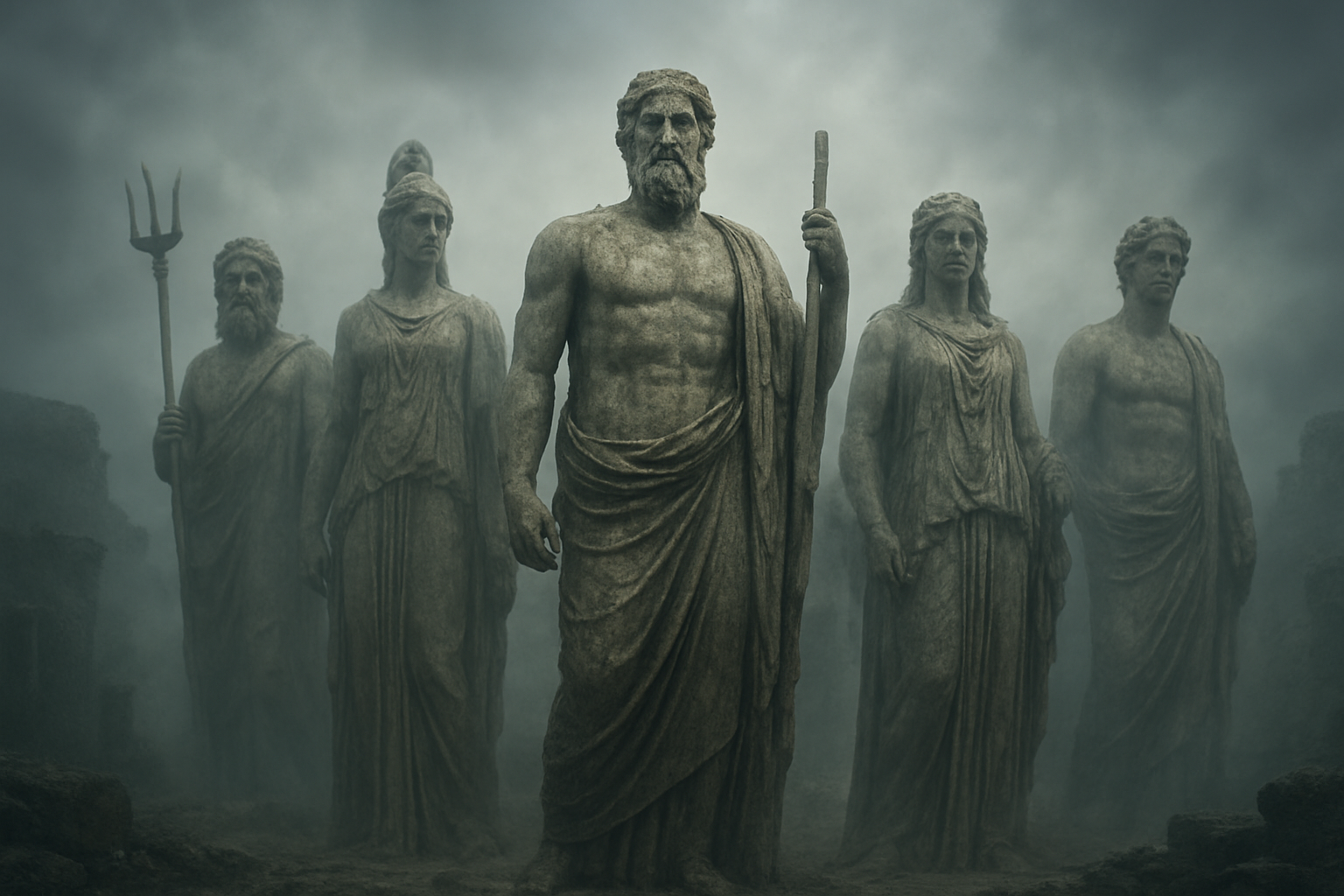The Phantom Pantheon: Myth of Vanishing Gods
Throughout human history, gods have played an integral role in shaping culture, morality, and civilization. However, not all deities have stood the test of time. Many gods who were once worshipped fervently have faded into obscurity, becoming part of what some call the “Phantom Pantheon.” These vanishing gods raise intriguing questions about the nature of belief, memory, and the evolution of spirituality.
The Rise and Fall of Divine Beings
In ancient times, polytheistic religions thrived across various cultures, each with its own pantheon of gods. As societies evolved, many of these gods slipped into the shadows, replaced by new beliefs. This phenomenon poses an interesting puzzle: why do some gods endure while others vanish?
For instance, Ra, the sun god of ancient Egypt, was once central to Egyptian religion but receded as new religious currents, like Christianity and Islam, spread across the globe. Neil Gaiman captures the essence of this phenomenon when he writes in American Gods, “Gods die when they are forgotten.”
The Factors Behind Vanishing Gods
Several factors can contribute to the decline of a deity:
- Cultural Shifts: As cultures merge and societies change, religious beliefs often evolve. For example, the Greek pantheon diminished as Roman religion grew and Christianity spread.
- Political Influence: New political powers may enforce their own religious ideologies, leading to the abandonment of old gods. The Roman Empire’s adoption of Christianity is a classic example.
- Changing Nature of Worship: The nature of worship itself can change, as seen in the movement from animism to organized religions with centralized gods.
Mythological Memory: The Role of Storytelling
Despite their disappearance from active worship, these ancient gods often continue to exist in mythological memory. Storytelling plays a crucial role in preserving their legends. The tales of Thor and Odin from Norse mythology, for instance, endure in literature and popular culture, despite the decline of Norse heathenism.
“Myth is much more important and true than history. History is just journalism and you know how reliable that is.” – Joseph Campbell
Campbell’s words highlight the enduring nature of myths beyond their religious origins, living on in stories and symbols.
Modern Reflections and Reinterpretations
Today, many ancient gods find new life in modern contexts. Pagan and neo-pagan movements have revived interest in old traditions, often reinterpreting these deities in contemporary spiritual practices.
- Pop Culture Influence: Cinematic universes, video games, and literature breathe new life into old gods. Characters like Zeus and Athena appear in works like the Percy Jackson series, bringing ancient stories to a new audience.
- Spiritual Revival: Groups like the Order of Bards, Ovates, and Druids focus on Celtic gods and practices, reflecting a desire to reconnect with ancestral heritage.
The Mystery and Appeal of the Phantom Pantheon
The concept of vanishing gods is compelling because it forces us to confront the impermanence of belief. It also raises existential questions about the nature of divinity and the human need for connection with something greater than ourselves.
The Phantom Pantheon symbolizes the power of belief and the capacity for change inherent in human spirituality. As we navigate the complexities of modern life, these ancient stories may continue to provide insights and inspiration.
Conclusion
The myth of vanishing gods serves as a reminder of the fluid nature of faith through ages. While some deities have faded from immediate recollection, their essence lingers in cultural memory, art, and narrative. The Phantom Pantheon invites us to explore how spiritual endurance transcends time, offering new perspectives and guidance even in the modern era.
Ultimately, the myth of disappearing deities resonates with the continuity of human longing for meaning, connection, and understanding in an ever-changing world.

Comments